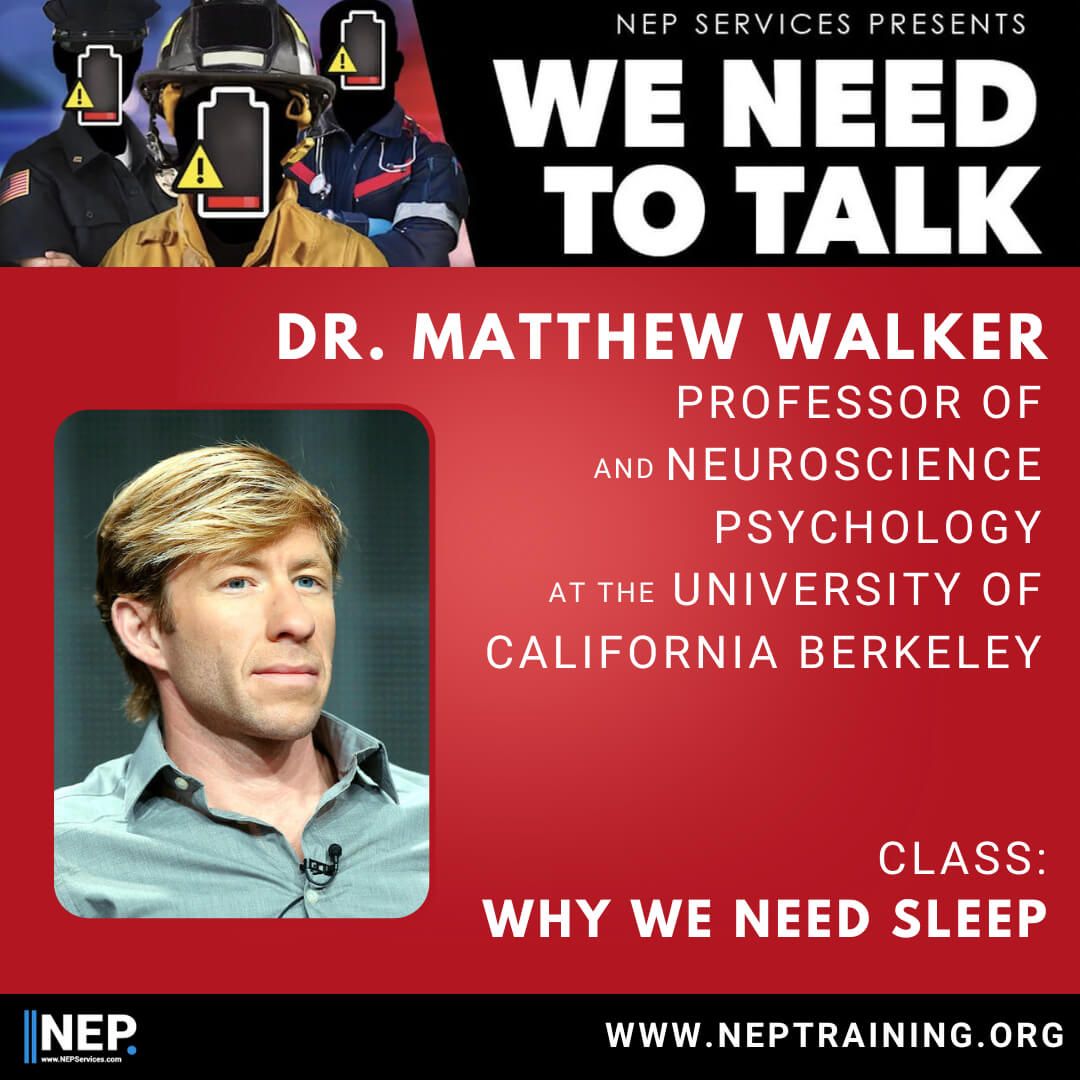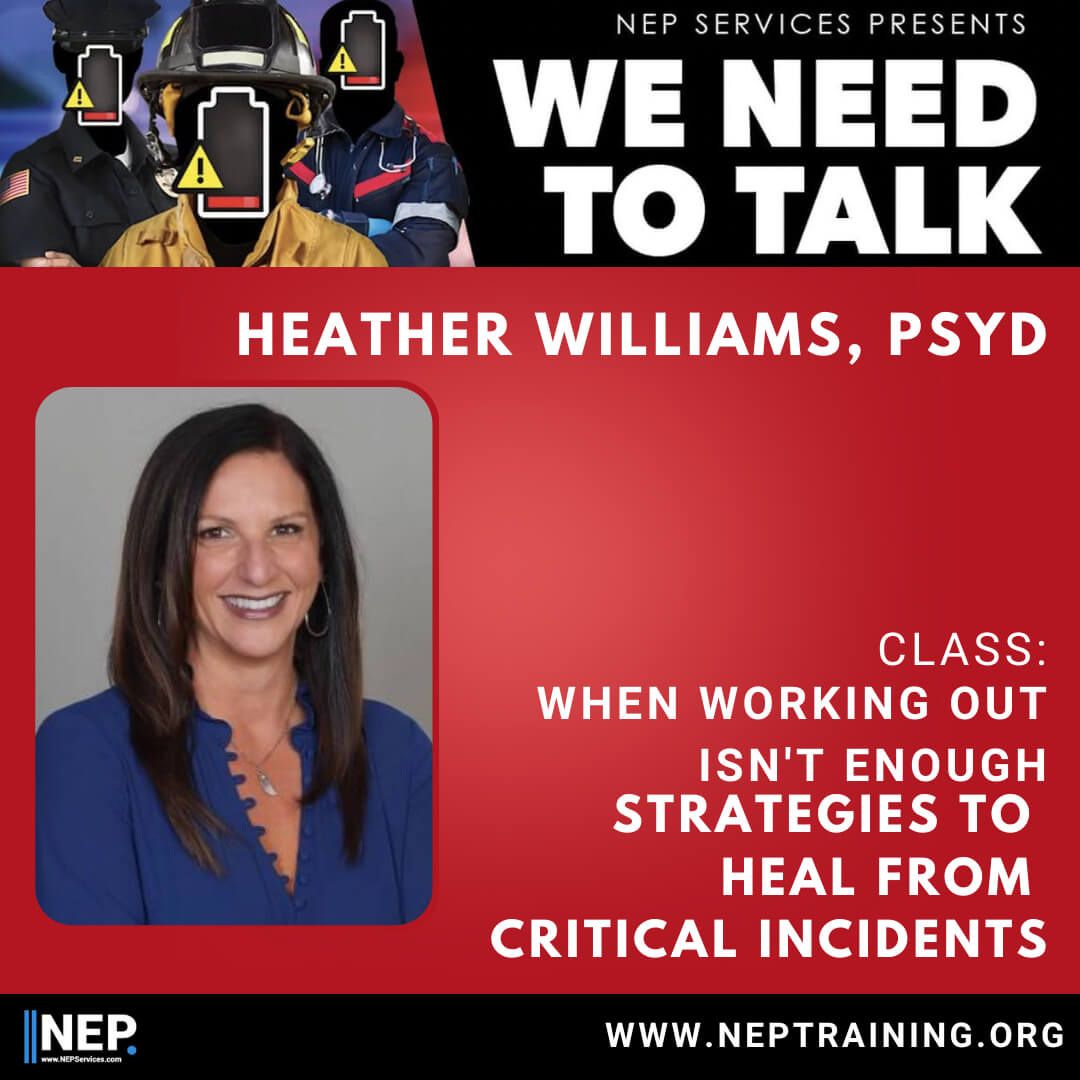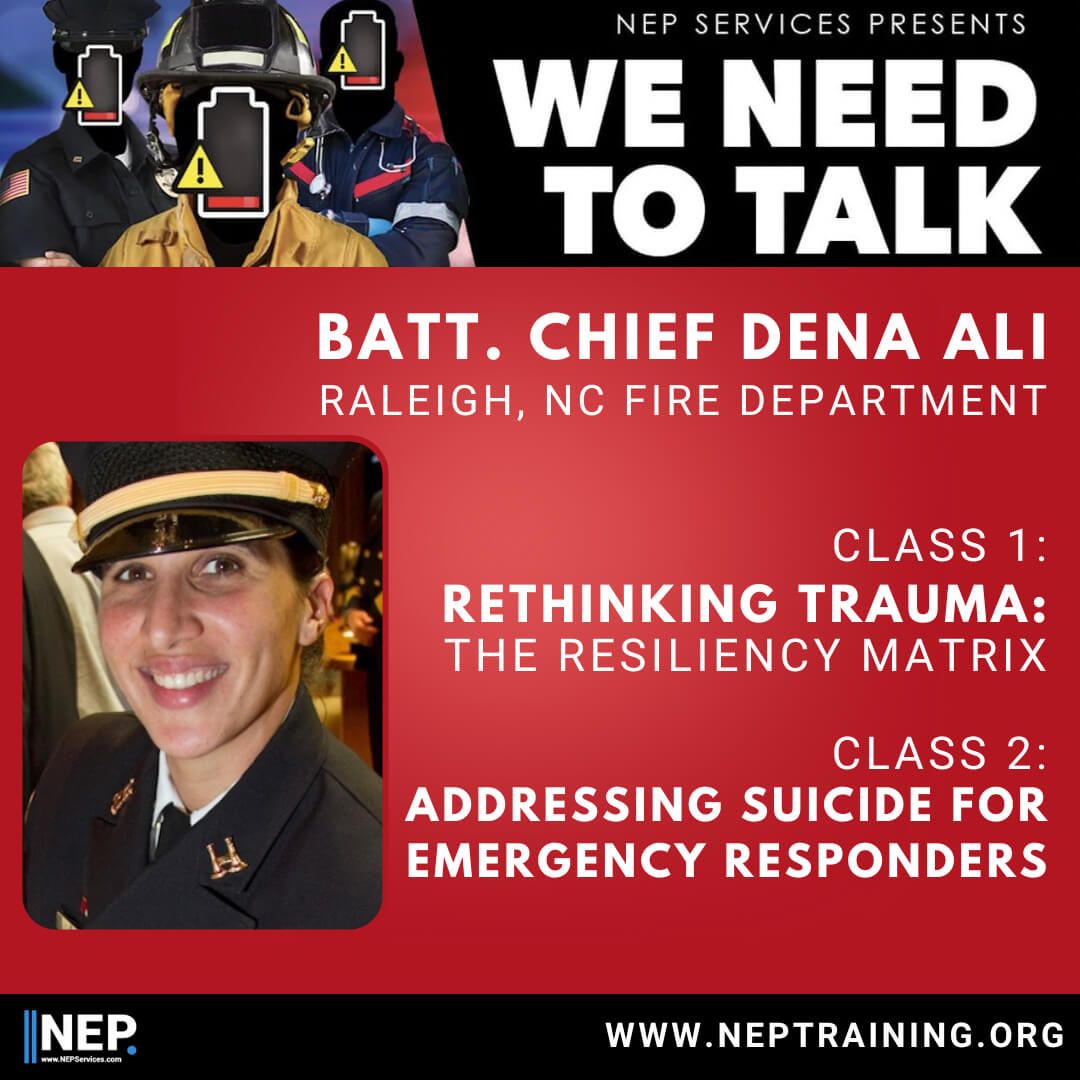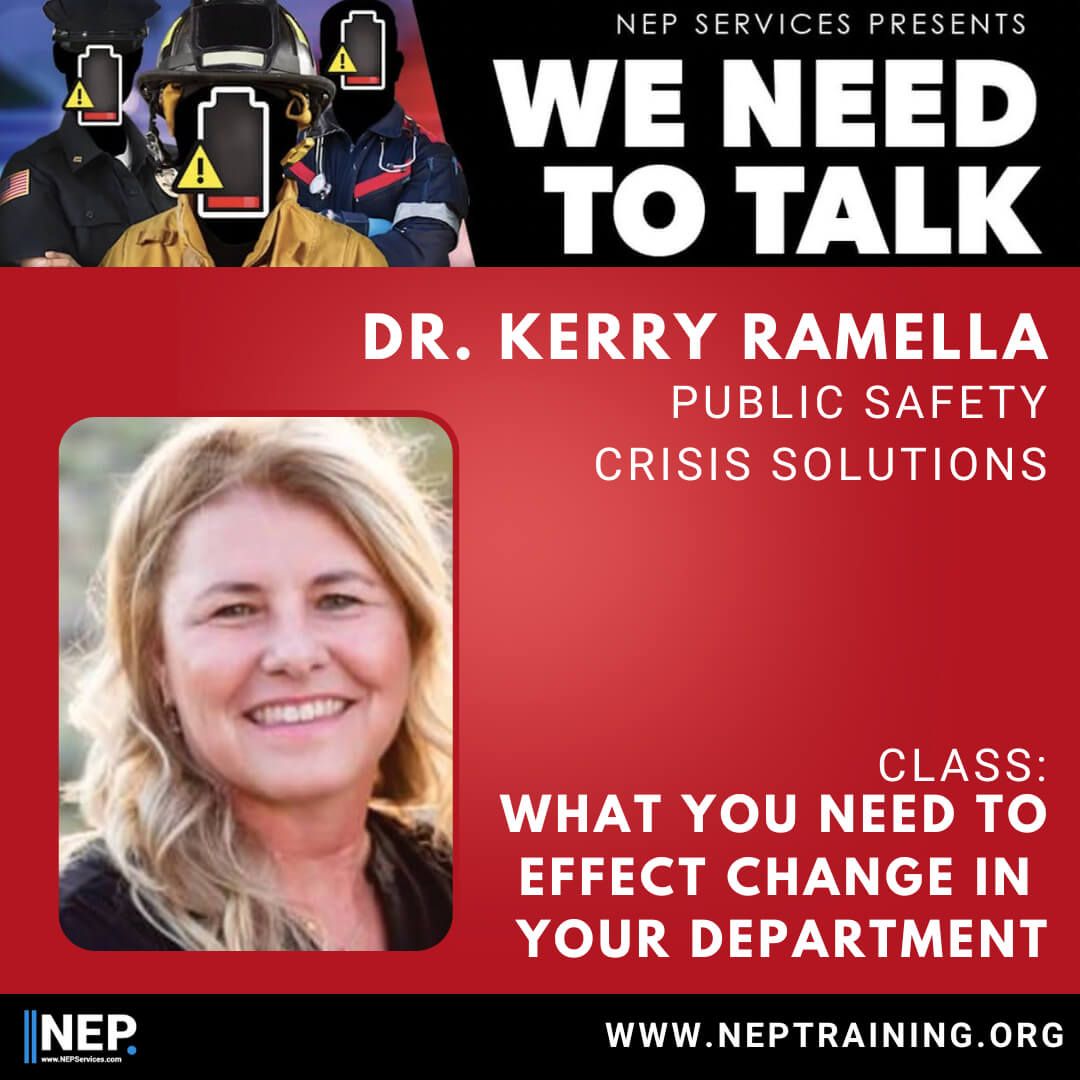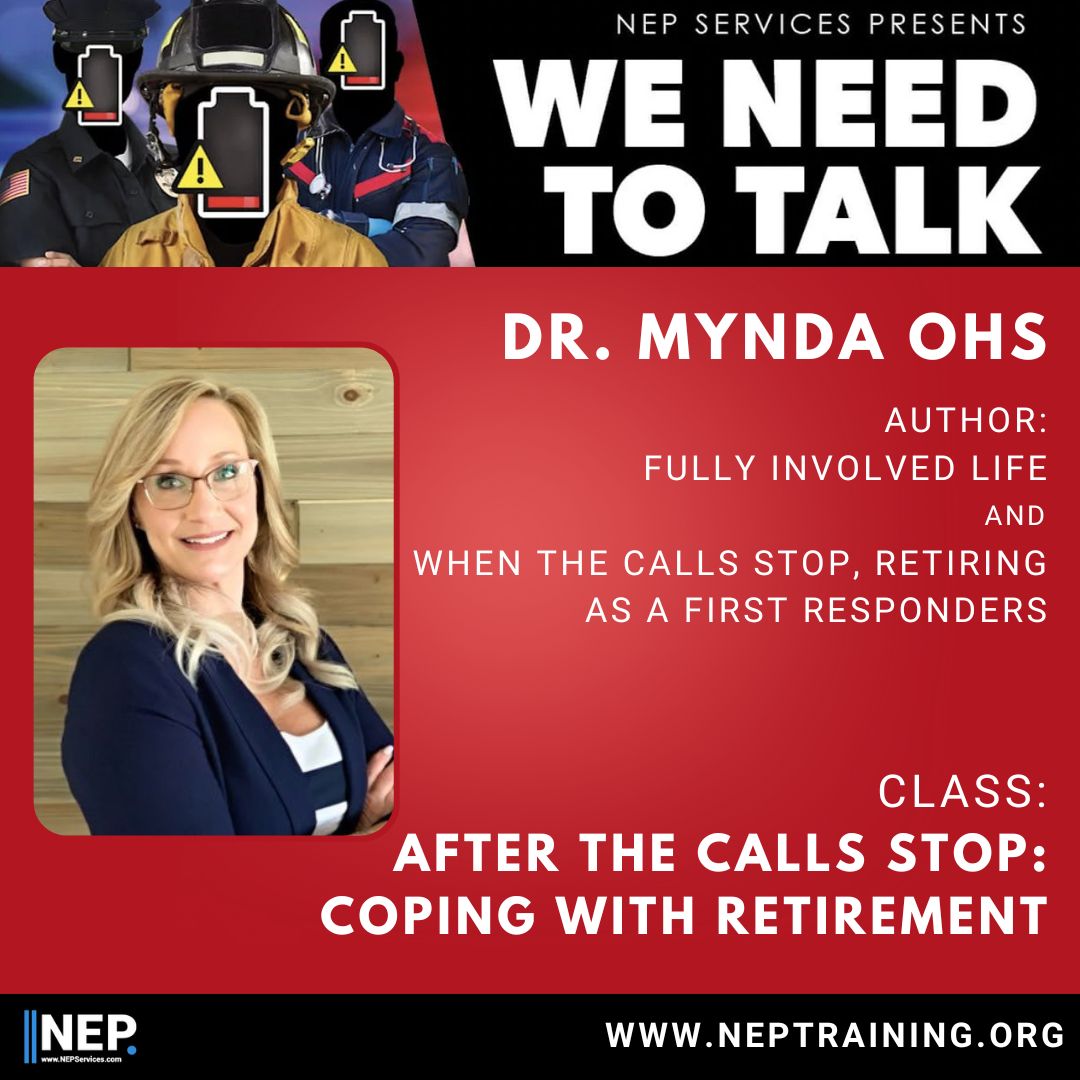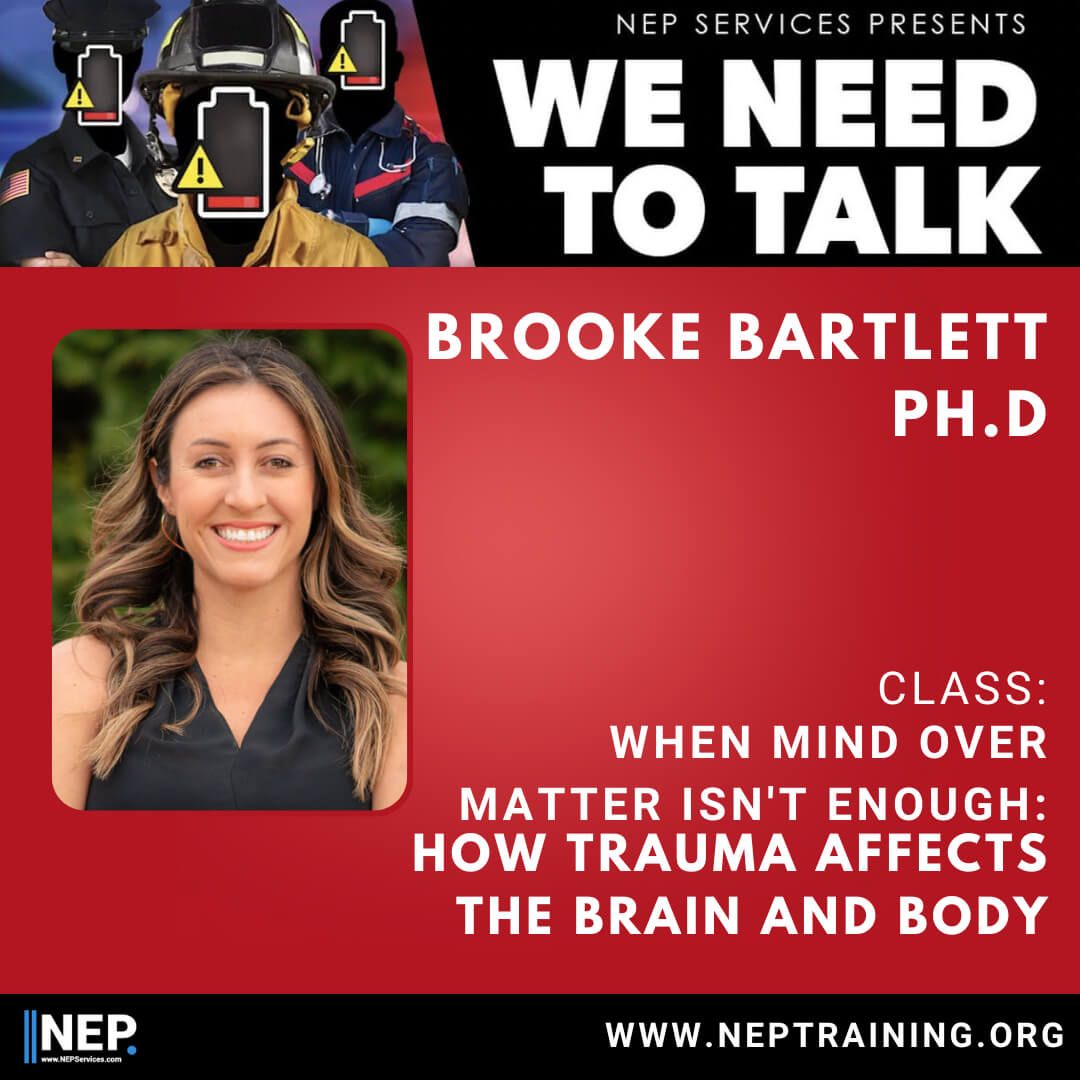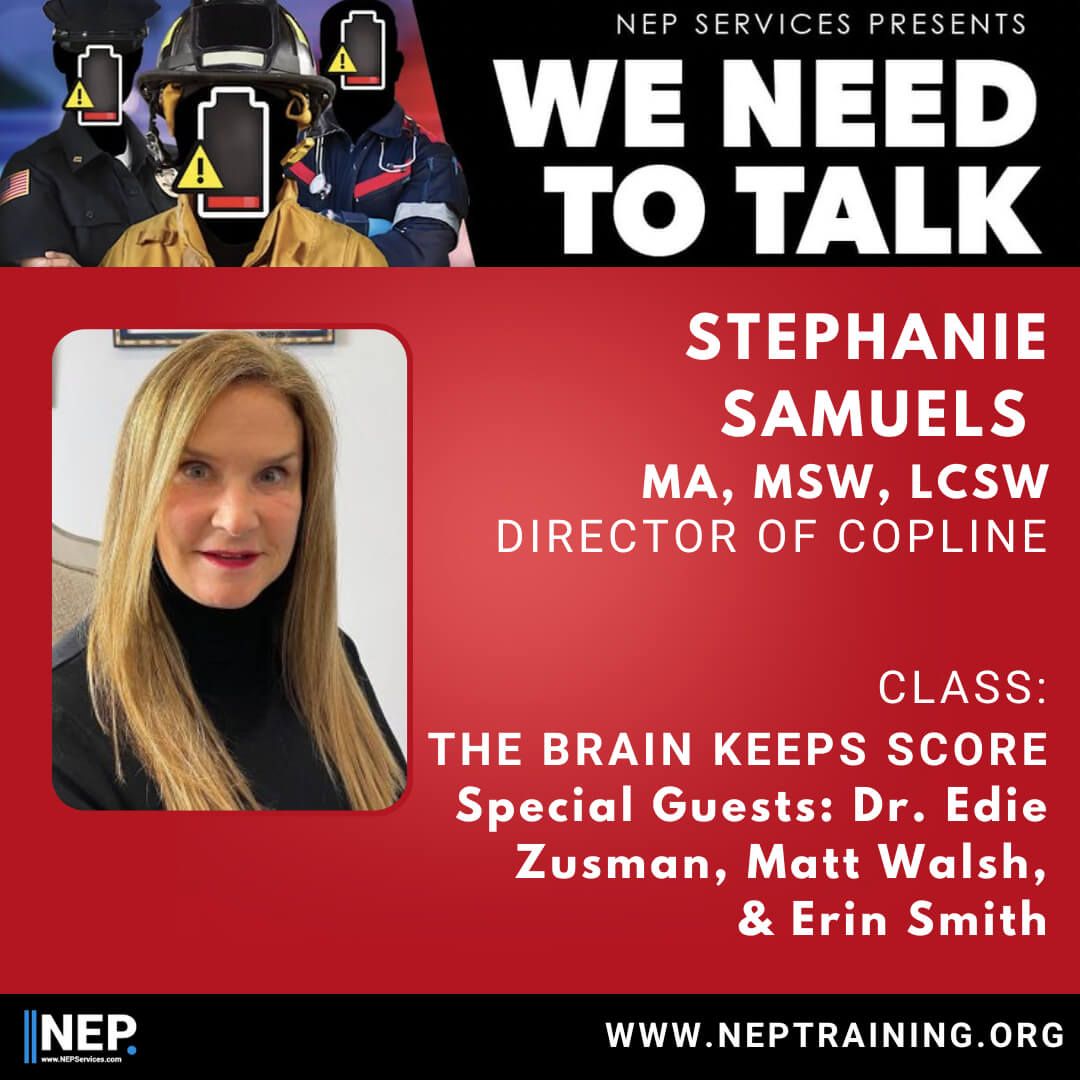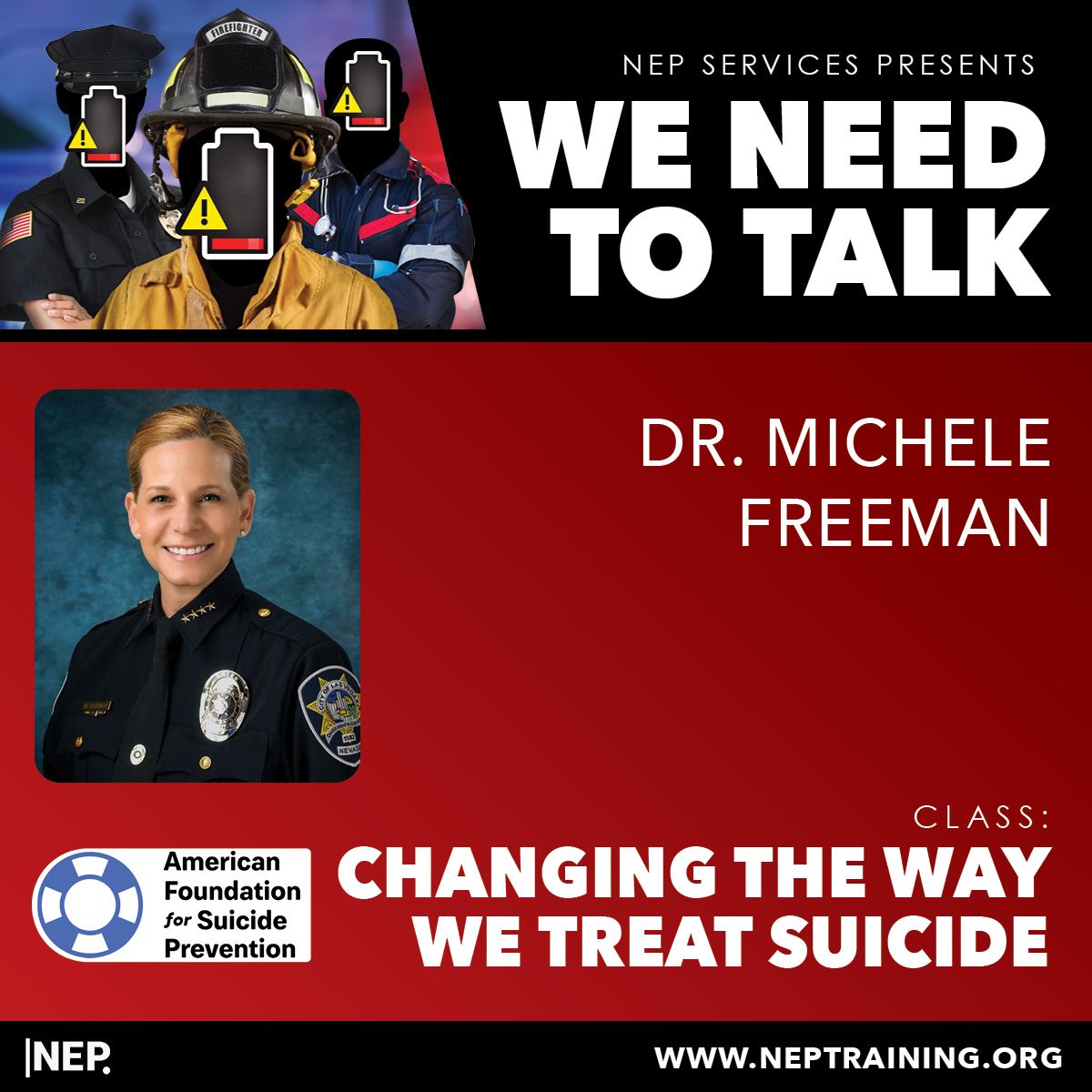
PRESENTED BY NEP SERVICES
WE NEED TO TALK
A serious discussion on behavioral health among emergency responders
June 27th and 28th, 2023
The Mirage Hotel - Las Vegas, NV
Sponsorship Opportunities
Questions? Contact Mark Treglio [email protected]
- Video Commercial touting your service to be played on social media leading up to the event, during the opening of the event, and during breaks.
- 20’ X 10’ Booth Space
- Signage at main event and Night One Reception
- Prime Location Booth Space
- 10 minutes to address the attendees on Day 1.
- Material in Attendee folders
- Logo on Social media graphics and promotions
- Weekly mentions on NEP Social Media Starting 7/1
- Ad space in NEP Email blasts to clients
- NEP will work with you to generate local news.
- 10 tickets to event with hotel rooms covered
- Weekly mentions on social media beginning 2/1
- Signage at event and Night One Reception
- 10’ X 10’ Booth Space
- 5 minutes to address the attendees on Day 1.
- Material in Attendee folders
- Logo on all event graphics and promotions
- Weekly mentions on NEP Social Media Starting 8/1
- Ad space in NEP Email blasts to clients
- NEP will work with you to generate local news.
- 8 tickets to event with hotel rooms covered
- Weekly mentions on social media beginning 3/1
- Signage at event
- 10’ X 10’ booth space
- Material in attendee folders
- Weekly thank you on Social Media Starting 9/1
- NEP will work with you to generate local news.
- 6 tickets to event with hotel rooms covered
- Weekly mentions on social media beginning 4/1
- 10’ X 10’ Booth Space
- Material in attendee folders
- Weekly thank you on Social Media Starting 10/1
- NEP will work with you to generate local news.
- 4 tickets to event with hotel rooms covered
- Weekly mentions on social media beginning 5/1
- Registration for two attendees to the event
- Material in attendee folders
- Weekly recognition on social media
- Weekly mentions on social media beginning 6/1
- Registration for one attendee to the event
- Material in attendee folders
- Weekly recognition on social media
- Weekly mentions on social media beginning 6/1

SPONSOR A HERO - $1000 CORPORATE SCHOLARSHIP
- Registration for 1 attendee.
- Attendees are still responsible for travel.
- Companies providing sponsorship for their local attendees receive thank you on social media.
- NEP will work with you to generate local news.
AGENDA
WHY WE NEED SLEEP
DR. MATTHEW WALKER
This foundational class with the world’s premiere expert on sleep deprivation lays out the science of sleep and how the lack of it contributes to just about every health problem emergency responders face. Also provides invaluable tips on how to improve sleep so you can work to establish new health and safety standards back at home.
CHANGING THE WAY WE TREAT SUICIDE
Dr. Michele Freeman, AMERICAN FOUNDATION FOR SUICIDE PREVENTION
Suicide is a sensitive topic to discuss. Stigma and fear continue to keep those who are struggling to get the help they need and deserve. Accurate reporting of suicide remains difficult and increases our need to invest more resources for this leading cause of death. Dr. Freeman of AFSP will discuss how we view suicide, how to talk about it, and proactive steps you can take to implement sound, proactive policy on your department.
WHEN WORKING OUT ISN’T ENOUGH: STRATEGIES TO HEAL FROM CRITICAL INCIDENTS
HEATHER WILLIAMS, PSYD
When stressed, emergency responders usually resort to their “go-to” in order to cope, whether it is working out, going for a jog, or simply throwing a line in the water to fish. Dr. Williams will walk through her “Admit, Talk, Heal” approach for when your coping mechanism isn’t enough to manage the stress and trauma you face.
RETHINKING TRAUMA
DENA ALI- BATTALION CHIEF, RALEIGH (NC) FIRE DEPARTMENT
PTSD has become a common phrase in emergency services, yet our understanding of its manifestation, diagnosis, and treatment is not well known. This class will lean on evidence-based research to explain the origins of trauma and more importantly, the path towards resiliency.
WHEN MIND OVER MATTER ISN’T ENOUGH: HOW TRAUMA AFFECTS THE BRAIN AND BODY
BROOKE BARTLETT, Ph.D
Trauma exposure is par for the course in the career of a first responder, and it can lead to a range of unfavorable symptoms if left unaddressed. Yet, there is a common misconception in first responder culture that managing trauma symptoms is merely a matter of willpower. This presentation aims to correct this misconception by addressing the physiological underpinnings of trauma exposure and how it impacts our thinking and behavior. It will also highlight ways to mitigate the effects of trauma exposure through a scientific lens.
AFTER THE ALARM
DR. MYNDA OHS
Dr. Ohs focuses on emergency responders and behavioral health issues as they approach retirement knowing that they won’t be needed anymore, there won’t be any more emergencies, and the adrenaline rush and camaraderie are gone.
WHEN THE PEER TEAM MEMBER NEEDS THE HELP
JASON PRESLEY- ARAPAHOE COUNTY (CO) SHERIFF’S OFFICE
Every department has them. The member that is always there front and center leading the charge when other members of the department are in need. But what happens when that person is the one needing help? Arapahoe County Sheriff’s Jason PreslEy walks you through his story of being that guy, becoming the one who needed help, and steps you can take to stay healthy and be there for your members.
WHEN THE CALL COMES: TALKING ABOUT A CANCER DIAGNOSIS
CHIEF BRIAN FRIEDERS (RET)- FIREFIGHTER CANCER SUPPORT NETWORK
The Firefighter Cancer Support Network will discuss the events in the immediate hours of a cancer diagnosis and how to help friends, family, and co-workers get through that early phase of how to cope with someone who has received the dreaded call to inform them of a cancer diagnosis.
ADDRESSING SUICIDE FOR EMERGENCY RESPONDERS
DENA ALI- BATTALION CHIEF, RALEIGH (NC) FIRE DEPARTMENT
As first responders, when we think of mental health disorders, we often think in terms of us vs them. We believe that our responsibility to our community means we can never show any sort of weakness. This misperception can lead members to suppress emotions and fail to address the underlying causes that can build into crisis. Attendees will learn methods to prevent suicide by learning its traceable causes. Rather than focusing on individual risk factors, this course is designed to explain how creating an environment to encourage help seeking behavior can alter an individual's trajectory from reaching suicide.
WHAT YOU NEED TO AFFECT CHANGE ON YOUR DEPARTMENT
DR. KERRY RAMELLA- FIRESTRONG
Dr. Ramella will focus on what you need to do back home to affect change and enact new policies and procedures that are proactive in nature.
THE BRAIN KEEPS SCORE
Stephanie Samuels- M.A., MSW, LCSW
Special Guests: Dr. Edie Zusman, Matt Walsh, and Erin Smith
More and more science is leading to Post Concussion Syndrome (PCS) being a contributing factor to behavioral health issues among emergency responders. Samuels and an expert roundtable will present on how patients with PCS can experience concussion-like symptoms at rest or in response to too much physical or cognitive activity, often forcing them to withdraw from their usual physical, professional, and social lives. Q & A session to follow. Joining Dr. Samuels will be special guests
Dr. Edie Zusman - Dr. Edie Zusman is a board-certified practicing neurosurgeon who is recognized nationally for both her neurosurgical skills and her expertise in health systems.
Matthew Walsh - Matt Walsh is a 25-year law enforcement professional and the Assistant Special Agent-in-Charge for the Florida Department of Law Enforcement Jacksonville Regional Operations Center. He is the FDLE Statewide Coordinator for the Critical Incident Stress Management and Peer Support Team. Matt has led interventions following the Pulse nightclub attack, the Broward Airport shooting, the Parkland school shooting, the Sebring mass shooting and other critical incidents.
Erin Smith - The widow of Officer Jeffrey L. Smith of the Metropolitan Police Department, Washington DC, who died in the Line of Duty on January 15, 2021 due to injuries he suffered at the United States Capitol on January 6, 2021.
